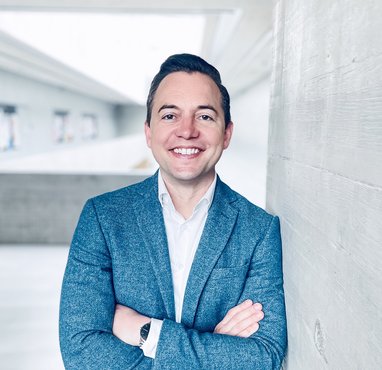Prof. Dr. Patrick Planing
Professor

- Quantitative research methods
- Innovationmanagement
- Strategy
- Marketing
- Innovation Acceptance and Transformation
Vita
-
since 2017
Professor for Business Psychology at HFT Stuttgart
-
2007-2017
Daimler AG: Business Development & Business Innovation, last position: Manager Digital Transformation Mercedes-Benz Cars.
-
2009-2013
PhD , Leeds Beckett University (UK) with the topic Acceptance of Driver Assistance Systems
-
2006-2007
MBA Pforzheim University und Brighton University (UK)
University Projects
RE:New City Incubator
RE:New City Incubator: Incubator for sustainable PropTec and Con Tec Start-Ups
![[Image: Stuttgart Marktplatz 2045 by Reinventing Society / Render Vision, CC BY-NC-SA 4.0 https://realutopien.info/visuals/stuttgart-2045/] Visualisierte Zukunftsvision des Projekts RE:New City /Visualized future vision of the project RE:New City](/fileadmin/Dateien/Forschung/_processed_/0/e/csm_RENew_City_04039374a9.jpg)
2020-2024
Head of Entrepreneurship program (EXIST)
Research
![[Image: HFT Stuttgart/Max Haag]](/fileadmin/Dateien/Forschung/_processed_/7/a/csm_iCity-Logo-EMO4_558edda4fd.png)
2019
AirTaxiS | Acceptance of Air Taxis, A research project with Volocopter GmbH, Daimler AG, City of Stuttgart and the State of Baden-Württemberg
Publications
-
2019
Acceptance of air taxis-A field study during the first flight of an air taxi in a European city (Preprint available at https://osf.io/preprints/rqgpc/)
-
2019
Digital Automation of Customer Contact Processes–an Empirical Research on Customer Acceptance of different Chatbot Use-cases. In: Digitalen Wandel gestalten. Springer Gabler, Wiesbaden, 2019. S. 217-229.
-
2018
Towards a circular economy – how business model innovation will help to make the shift (2018), in Int. J. Business and Globalisation, vol. 20 issue 1, pp.71–83.
-
2018
Acceptance of shared autonomous vehicles-a correspondence analysis of new car buyer attitudes. International Journal of Sales, Retailing & Marketing, 2018, 7. Jg., Nr. 2.
-
2017
On the origin of innovations—the opportunity vacuum as a conceptual model for the explanation of innovation (2017), in Journal of Innovation and Entrepreneurship, vol. 6 issue 5, pp. 1-18
-
2017
Will digital boost circular? Evaluating the impact of the digital transformation on the shift towards a circular economy (2017), in International Journal of Management Cases, vol. 19 issue 1, pp. 22-31
-
2017
The Digital Business Transformation Paths from Manufacturer to Digital Ecosystem Provider - Analyzing the Strategic Options of Large Corporations towards Digitalization (2017), in Allied Academies International Conference Proceedings, Vol. 18 (2), pp. 74-78
-
2016
Business Model Innovation in a Circular Economy - Reasons for Non-Acceptance of Circular Business Models (2016), in Open Journal of Business Model Innovation, Vol.1(1)
-
2015
Measuring consumer innovativeness: An empirical re-evaluation of Roger’s Innovativeness Scale (2015), in International Journal of Sales, Retailing and Marketing, Vol.4 (2), pp.86-96
-
2014
Innovation Acceptance - The Case of Advanced Driver-Assistance Systems (2014), in SpringerGabler Research, Wiesbaden
-
2014
Applications of psychological constructs in global empirical consumer acceptance research: a meta-study (2014), in Int. Journal of Business and Globalisation, Vol. 12 (1), 2014
-
2011
The role of brand trust in the individual decision process towards the use of new technologies: An empirical investigation (2011), in The Psychology of Education Review, vol. 35 issue 1, pp. 8-11